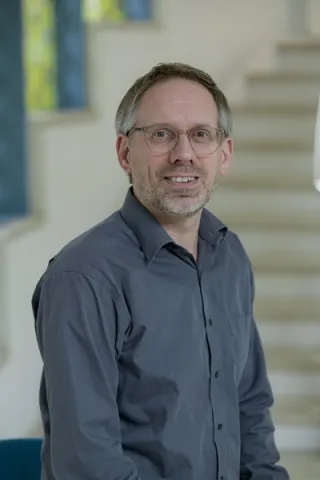Project overview
Advanced materials are needed in almost all aspects of our lives. Healthcare, energy generation, data storage, and pollution control, for example, all require advanced materials.
Part of the ADAM (Autonomous Discovery of Advanced Materials) project will look for new materials for splitting water into hydrogen and oxygen, as a source of hydrogen as a clean fuel. The team will also focus on gas storage and the separation of molecules using porous materials, which can be very energy-intensive.
Professor Day, of the Computational Systems Chemistry research group, says: “The idea is to automate as much of the materials discovery process as we can, freeing up more of the researcher’s time for coming up with new ideas, which can be handed over to the computational-robot system to explore.
“At Southampton we are developing computational methods that can propose molecules that look promising and predicting how they come together in the solid state. We’re working on the methodology to make things more general so they work on more types of molecules and will be able to find all kinds of new molecules that we might not have expected.”
Part of the ADAM (Autonomous Discovery of Advanced Materials) project will look for new materials for splitting water into hydrogen and oxygen, as a source of hydrogen as a clean fuel. The team will also focus on gas storage and the separation of molecules using porous materials, which can be very energy-intensive.
Professor Day, of the Computational Systems Chemistry research group, says: “The idea is to automate as much of the materials discovery process as we can, freeing up more of the researcher’s time for coming up with new ideas, which can be handed over to the computational-robot system to explore.
“At Southampton we are developing computational methods that can propose molecules that look promising and predicting how they come together in the solid state. We’re working on the methodology to make things more general so they work on more types of molecules and will be able to find all kinds of new molecules that we might not have expected.”
Staff
Lead researchers
Collaborating research institutes, centres and groups
Research outputs
Jessica Patel, Zachary Leduc, Aaron Gabriel Nunez Avila, Joseph Glover, Kelin Wu, Yuxing Zhang, Jing Zhang, Xiaoting Zhai, Huize Jing, Alex M. Chen, Daniel Chartrand, Thierry Maris, Graeme M. Day & James D. Wuest,
2024, Crystal Growth & Design, 24(3), 1268-1283
Type: article
Amy M. Lunt, Hatem Fakhruldeen, Gabriella Pizzuto, Louis Longley, Alexander White, Nicola Rankin, Rob Clowes, Ben Alston, Lucia Gigli, Graeme M. Day, Andrew I. Cooper & Samantha Y. Chong,
2023, Chemical Science
DOI: 10.1039/D3SC06206F
Type: article
